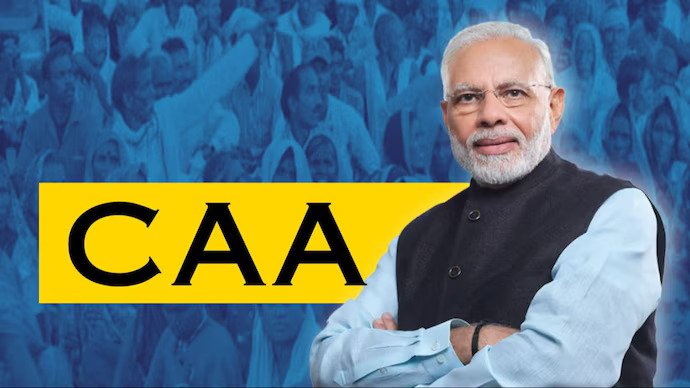CAA ACT
Passed by the Indian Parliament in December 2019, the Citizenship Amendment Act (CAA) has been one of the most debated and contentious laws in recent Indian history. This Act amends the Citizenship Act of 1955 to expedite citizenship for migrants from Hindu, Sikh, Jain, Parsi, Buddhist, and Christian communities from Afghanistan, Bangladesh, and Pakistan who entered India before December 31, 2014, and faced religious persecution in their home countries.
Key Provisions Of The CAA
Fast-track Citizenship Route: The CAA creates a fast-track pathway to Indian citizenship for eligible migrants from specified countries. It reduces the minimum residency requirement for citizenship from 12 years to just 11 years.
Focus on Religious Persecution: This Act is grounded on the idea of furnishing retreats to those who have suffered religious persecution. It excludes Muslims from eligibility criteria.
Exemption for Northeastern States: The CAA does not apply to areas under the Inner Line Permit system and tribal areas in northeastern states listed in the Sixth Schedule of the Constitution. Its end is to cover the rights and interests of indigenous communities.

Source: Google
Arguments In Favor Of The CAA
Security for Minorities: Supporters argue that the CAA provides a vital pathway to citizenship for persecuted minority communities in neighboring countries. They see it as a philanthropic gesture.
Historical Context: Supporters refer to instances such as the acceptance of Tibetan Buddhists and Hindus from East Pakistan during partition to argue that India has a long history of welcoming persecuted refugees based on religious grounds.
National Security: Some argue that the CAA enhances national security by identifying and regularizing the status of undocumented migrants.
Criticism Of The CAA
Discrimination Against Muslims: The primary criticism of the CAA is that it discriminates against Muslims by excluding them from eligibility criteria. Critics argue that this violates the principle of equivalency for all persuasions elevated in the Indian Constitution.
Erosion of Secularism: Opponents view the Act as a step towards a Hindu-centric state, weakening India’s secular character enshrined in the Constitution. Potential for Unrest: This law has sparked widespread opposition and concerns about social unrest, particularly among Muslims who feel targeted.

Source: Google
Implementation And Current Status
The CAA has sparked intense debate and protests across India, with both supporters and opponents voicing their concerns and perspectives. Its full implications and effects on India’s social fabric and national identity remain subjects of ongoing discussion and contention.”
The Citizenship Amendment Act (CAA) was passed in December 2019, but its implementation rules were notified in March 2024. Responsibility was assigned to develop a robust framework for processing applications to address this delay. The long-term impact of this legislation on India’s society and its relations with neighboring countries remains to be seen. Moving forward, The CAA Act has become a contentious issue in India. There’s a possibility that CAA could become a major political issue in the forthcoming general choices in 2024. Only time will tell how this legislation shapes India’s future and its station on citizenship and immigration.

Source: Google
Legal Challenges And Judicial Scrutiny
The Citizenship Amendment Act has faced legal challenges, with desires filed in colorful courts questioning its indigenous validity. Opponents contend that this legislation trespasses upon the sacred tenets of equivalency under the law, and erodes the bedrock of abecedarian rights elevated within the Indian Constitution, particularly those of equivalency and non-discrimination. As the loftiest judicial authority in India, the Supreme Court has abstained from delivering a definitive verdict on this issue, therefore casting a shadow of query over the legal standing of the Citizenship Amendment Act.
Political Counteraccusations
The Citizenship Amendment Act has surfaced as a contentious issue in Indian politics, shaping electoral debates and alliances. It has led to polarization, with political parties taking divergent stations grounded on ideological confederations and electoral computations. The debate girding CAA has exhumed deep-embedded divisions within Indian society, exposing the complications of identity, citizenship, and collaborative relations. Legal challenges regarding CAA in Indian courts. By examining these aspects, you can gain a broader understanding of the complications associated with CAA and its counteraccusations for India.
